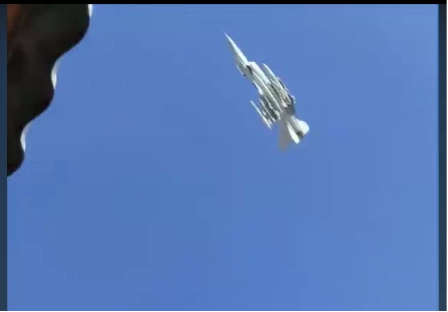Serial production of two of the planned flagship domestic airliners, necessary to overcome the impact of sanctions preventing maintenance and repair of Russia’s foreign aircraft, which was due to start in 2024 has been delayed.
According to the Moscow Times, the United Aircraft Corporation (UAC), part of the state-owned Rostec, said that deliveries of the Yakovlev MS21 medium-haul narrow-body aircraft will now start in 2025 and the Sukhoi Superjet 100 and the Ilyushin Il-114-300 turboprop regional aircraft are delayed until 2026.
JOIN US ON TELEGRAM
Follow our coverage of the war on the @Kyivpost_official.
The UAC spokesperson said, “Companies are faced with objective limitations – completely new systems, recreating competencies from scratch, the need for full testing and launching mass production under time pressure.”
The Ministry of Industry and Trade said the postponement of what it calls Russia’s “civil aviation import substitution programs” is because they are being implemented “in a time frame unprecedented by world standards,” for projects of this scale. It said that it is necessary to replace all systems and assemblies, including avionics, engines and aviation materials some of which have uncovered “objective technical difficulties.”
“All global aircraft manufacturers rely on broad international cooperation, suppliers from several dozen countries. Russia will have to cope on its own,” the Ministry of Industry and Trade spokesperson said.

UK to Unveil Sweeping Sanctions Against Russia
Rostec outlined its plans for the new aircraft. They planned to deliver 30 Superjet-100 by 2026 although there is less clarity on the MS-21, despite a successful maiden flight in 2017 and signing a contract with Aeroflot deliveries to start in 2020. Since then, there have been continual major changes to its design and technical specifications.
According to the RBC.ru news site, the MS-21 has failed to achieve the previously stated parameters: its range has been reduced from 5,000 to 3,500 kilometers (3,100 to 2,200 miles), passenger capacity has decreased from 211 to 135. A major issue is the substitution of the original engines for the aircraft by the Perm PD14, manufactured by the UEC-Aviadvigatel company which has recently been hit by increased Japanese sanctions.
The head of Rostec, Sergei Chemezov said that “Tests are not yet completed. As soon as we complete the tests, we will immediately see the results... We are still worried about the safety of all of us - we will fly on these planes.”
The original plan to partially meet Putin’s target was for delivery of just over 600 long-haul and regional aircraft starting in 2023. These would include: 142 Superjet 100, 270 MS-21, 70 Il-114 and 115 Tupolev Tu-214.
Oleg Panteleev, director of the Russian airline industry’s “AviaPort” agency said that Russian airlines will have no option but to wait for the domestically produced aircraft as they cannot purchase imported components and equipment for their foreign Boeing, Airbus and Bombadier aircraft.
Pantaleev said the initial dates for the serial production of these airliners were too optimistic but the delays were not entirely unexpected as “In aviation, everything doesn’t go smoothly the first time. This is especially true for Superjet, since the aircraft was originally developed with international cooperation, and now it is essentially being designed anew.”
You can also highlight the text and press Ctrl + Enter











